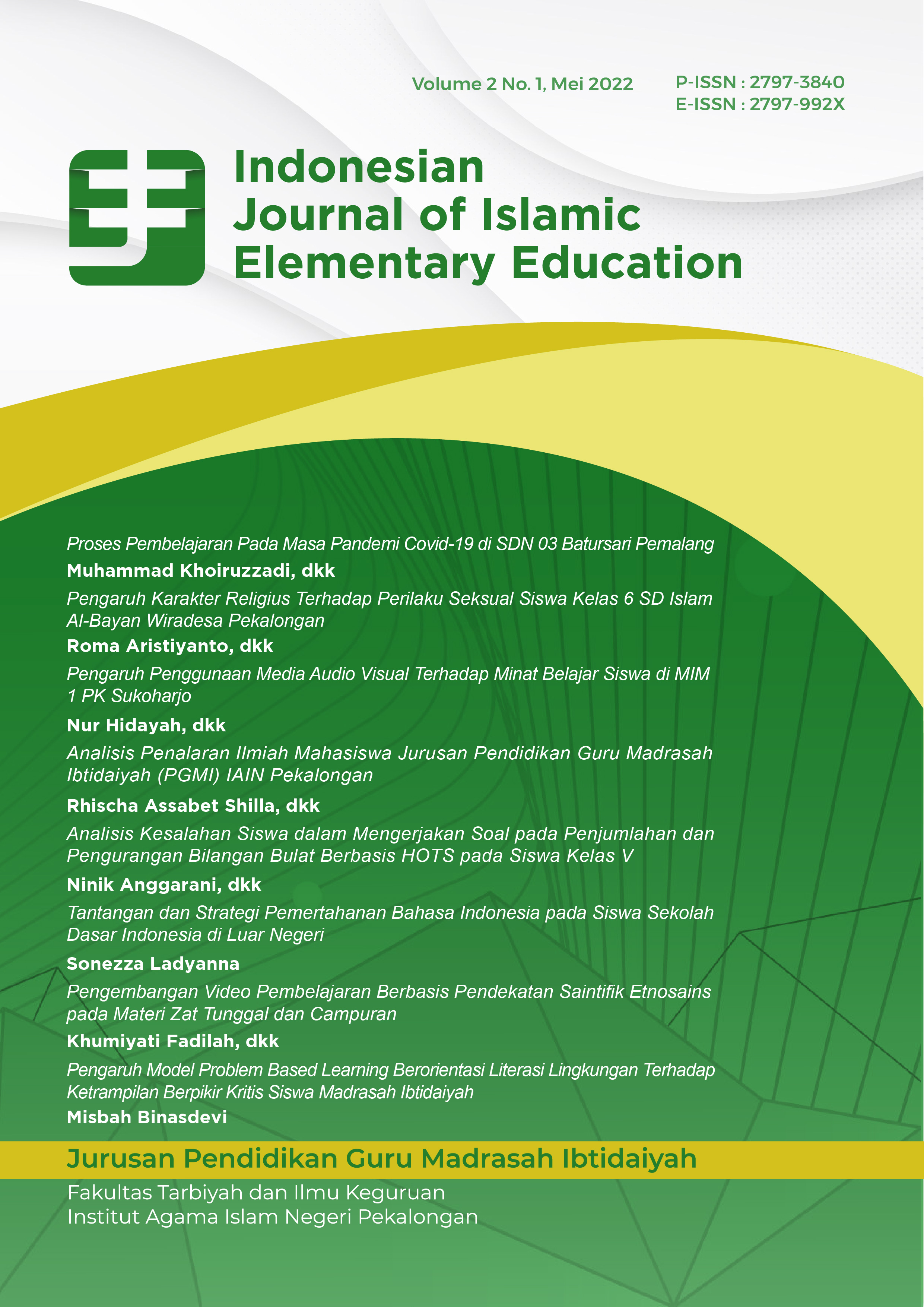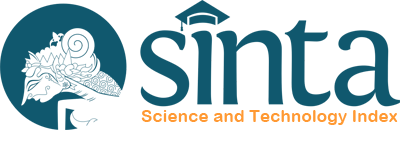Tantangan dan Strategi Pemertahanan Bahasa Indonesia pada Siswa Sekolah Dasar Indonesia di Luar Negeri
DOI:
https://doi.org/10.28918/ijiee.v2i1.5224Keywords:
Language defense, Language learning strategies, Language learner challengeAbstract
This article describes the challenges and strategies for maintaining the Indonesian language for Indonesian elementary school students who are currently abroad for a non-permanent period. This research was conducted qualitatively. The subject of this research is the challenges and strategies for maintaining the Indonesian language in Indonesian elementary school students who are (schooled) abroad for a non-permanent time. The object of this research is elementary school students of Indonesian citizenship in South Korea. Data were collected using observations and interviews with students and their parents from September 2021-March 2022. Then, the data were analyzed qualitatively descriptively. Based on the results of the study, it was found that the challenges of Indonesian elementary school students living temporarily in South Korea in maintaining language were in the use of the official Indonesian language, both written and spoken. The strategies found in maintaining the Indonesian language include parents teaching Indonesian language using textbooks and teaching materials from pages provided by the Ministry of Education and Culture of the Republic of Indonesia and students taking Indonesian language lessons through direct online courses with subject teachers from Indonesia.
References
Asrofah, A., Ruhma, N., Ulya, F., Safitri, A., & Mubarok, H. (2021). Dampak Pertemuan Dua Kultural di Sekolah Indonesia Luar Ngeri (Sekolah Indonesia Den Haag- Sidh) pada Siswa Tingkat Pendidikan Dasar. Journal of Educational Learning and Innovation (ELIa), 24-32.
Fitriati, R., Romdana, R., & Rosyidi, U. (2014). The Practice of the School Principal's Leadership in Sekolah Indonesia Kuala Lumpur (SIKL): The Study of Leadership Styles and Techniques with Cognitive Mapping Approach. The 5th Indonesia International Conference on Innovation, Entrepreneurship, and Small Business (IICIES 2013) (hal. 258-268). Elsevier.
Hadi, S. (2019). Problematik Pendidikan Bahasa Indonesia Kajian Pembelajaran Bahasa Indonesia pada Sekolah Dasar. Jurnal Pendidikan: Riset dan Konseptual, 74-78.
Hidayah, N. (2015). Penanaman Nilai-nilai Karakter dalam Pembelajaran Bahasa Indonesia di Sekolah Dasar. Terampil, 190-204.
Indonesia, P. R. (2014). https://peraturan.go.id/common/dokumen/ln/2014/pp57- 2014bt.pdf. Diambil kembali dari https://peraturan.go.id/common/dokumen/ln/2014/pp57-2014bt.pdf: https://peraturan.go.id/common/dokumen/ln/2014/pp57-2014bt.pdf
Ladyanna, S., & Kim, J. G. (2019). Pemertahanan Bahasa Daerah pada Kaum Ekspatriat Indonesia di Korea Selatan. Puitika, 77-97.
Llanes, A., & Munoz, C. (2012). Age Effects in a Study Abroad Context: Children and Adults Studying Abroad and at Home. Language Learning, 63-90.
Prihantini, A. (2015). Master bahasa Indonesia: Panduan tata bahasa Indonesia terlengkap. Jakarta: Bentang B First.
Rozak, R. W., Suabuana, C., Kembara, M. D., & Islamy, M. F. (2020). Integrasi Nilai- nilai Pendidikan Sosial-budaya dalam pendidikan Bahasa Indonesia. Semantik, 11- 24.
Rusli, B., Rinaldi, E., & Muharam, R. S. (2016). Policy Implementation: Basic Education 9 Years Indonesian School Abroad in Malaysia. The International Academic Forum.
Sari, D. I. (2022). Multikulturalisme: Identitas Budaya Individu di Luar Negeri (Studi pada Siswa Sekolah Indonesia Singapura, LTD). Jurnal Kalacakra, 15-20.
Sulistiyowati, E. (2013). Pendidikan Karakter dalam Pembelajaran Bahasa Indonesia.
Edukasia, 48-79.
Werdingsih, D. (2015). Strategi Metakognisi Pembelajar Anak dalam Pembelajaran Bahasa Indonesia di Sekolah Dasar. Cakrawala Pendidikan, 107-117.
Wulan, N. S. (2014). Perkembangan Mutakhir Pendidikan Bahasa Indonesia: Kurikulum 2013 Sekolah Dasar. MImbar Sekolah Dasar, 176-184.
Downloads
Published
Issue
Section
License
Copyright (c) 2022 Sonezza Ladyanna

This work is licensed under a Creative Commons Attribution 4.0 International License.
You are free to:
Share — copy and redistribute the material in any medium or format for any purpose, even commercially.
Adapt — remix, transform, and build upon the material for any purpose, even commercially.
The licensor cannot revoke these freedoms as long as you follow the license terms.
Under the following terms:
Attribution — You must give appropriate credit , provide a link to the license, and indicate if changes were made . You may do so in any reasonable manner, but not in any way that suggests the licensor endorses you or your use.
No additional restrictions — You may not apply legal terms or technological measures that legally restrict others from doing anything the license permits.
Notices:
You do not have to comply with the license for elements of the material in the public domain or where your use is permitted by an applicable exception or limitation .
No warranties are given. The license may not give you all of the permissions necessary for your intended use. For example, other rights such as publicity, privacy, or moral rights may limit how you use the material.














